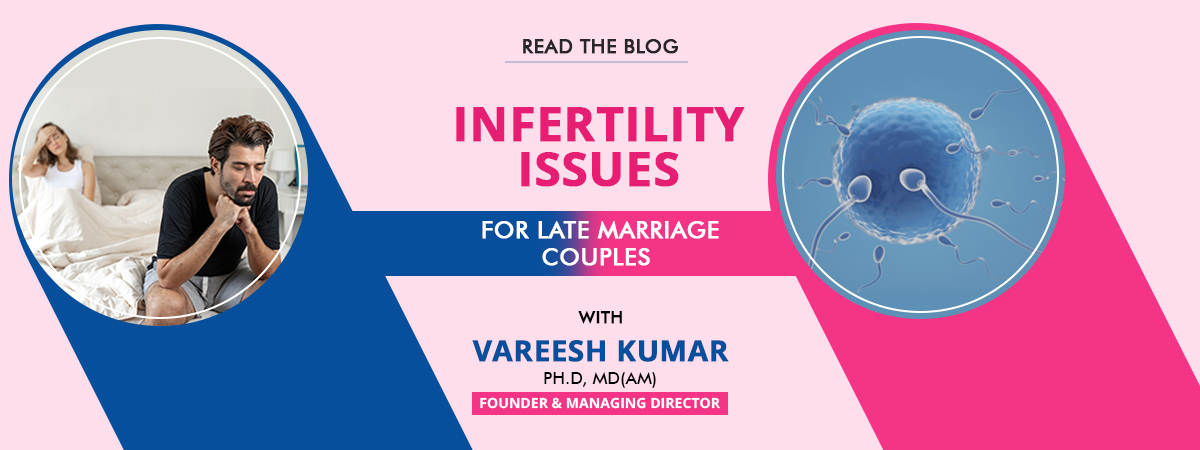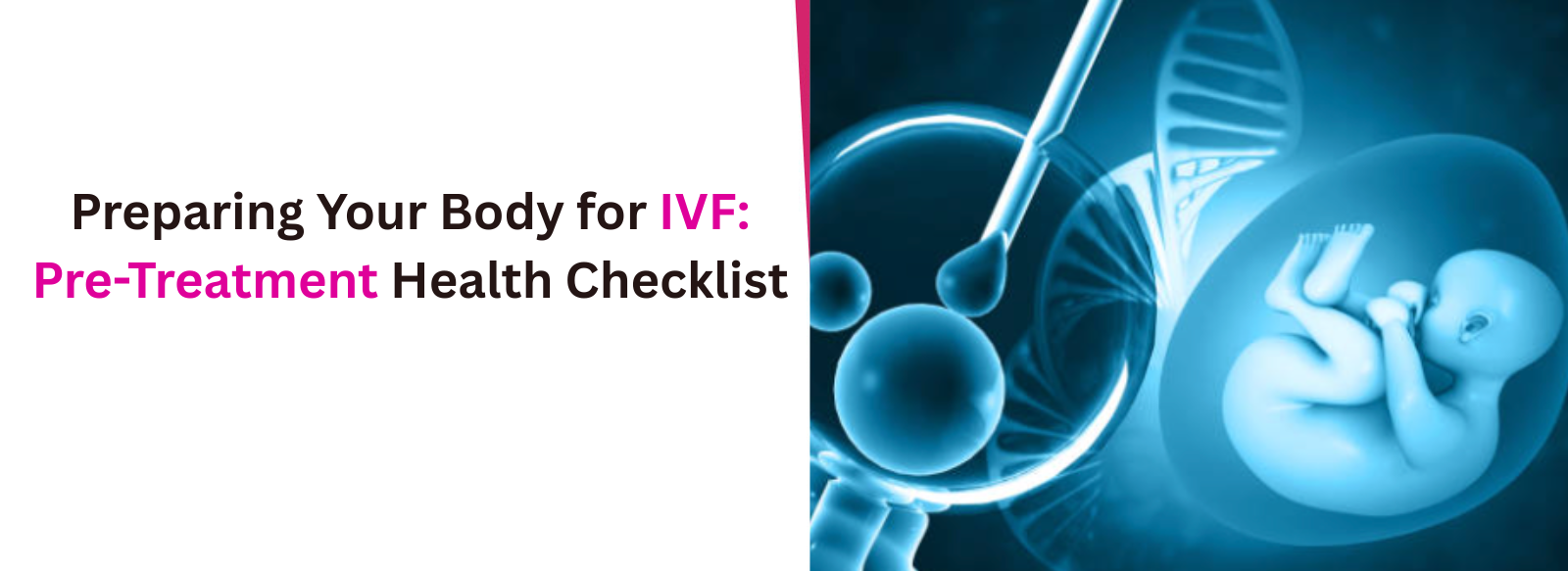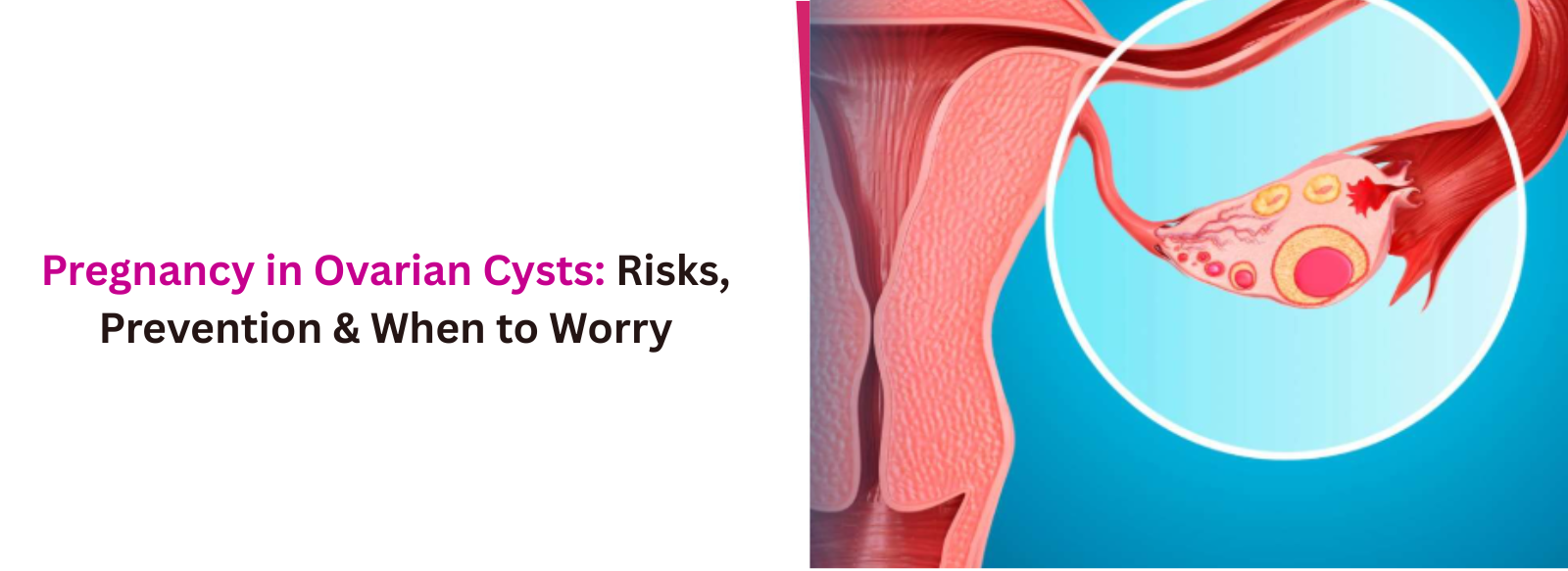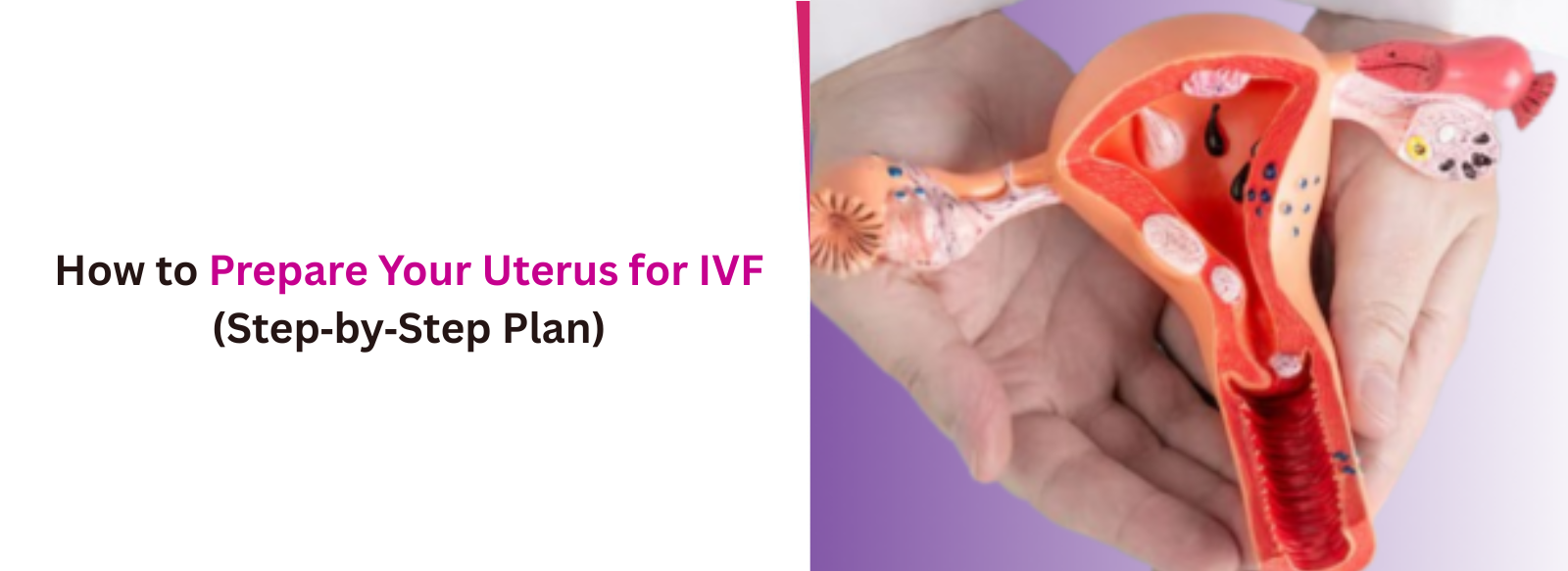If you and your partner are married late, whatever be the reason but now struggling to have a baby, you're not alone. As per the reports, 10% to 15% of late marriage couples face infertility issues. For couples who have married late, infertility may result from a combination of factors, such as your partner's health or even an issue with either of you. The effects of infertility among couples are significant since it harms their mental health. Fortunately, it is possible to become pregnant through many safe and effective therapy options. Let us discuss other preventative measures you can take to prevent infertility issues, symptoms, treatment options and other associated things.Before moving further, let's first discuss Infertility issues.
What is infertility? :
When a couple cannot get pregnant after regular, unprotected sex for one year, they are considered infertile. Infertility can affect men and women equally. Infertility exists if a woman has not used birth control for one year and has attempted to become pregnant. Having too few sperm or unhealthy sperm makes a man infertile. The majority of couples do not have any problem getting pregnant, but some can find it difficult for various reasons.Symptoms of Infertility :
An infertility symptom is not being able to become pregnant. No other symptoms may be apparent. A woman experiencing infertility may experience irregular menstrual cycles or even not have periods at all. There are instances in which men suffering from infertility issue may manifest hormonal changes, such as hair growth or sexual function changes.Couples can conceive, whether or not they receive treatment.When to see a doctor :
When you have been trying regularly to get pregnant for at least one year, you probably shouldn't need to see your health provider about infertility.It is advisable for women, however, to see a provider sooner under the following situations:- Attempting to conceive for six months or longer and are age 35 or older
- More than 40 years of age
- Having irregular or missing periods
- Painful menstrual cycles
- Fertility issues are known to the couple
- Miscarriages multiple times
- Having received cancer treatment
- Sperm problems, such as a low sperm count
- If you have ever had problems with your testicles, prostate, or sexual organs
- Having undergone cancer treatment
- A scrotum swelling or small testicles
- Family members with infertility issues
What causes infertility? :
Getting pregnant (making a baby) is a complex process. Both the man and woman need to have several things go their way. There are, therefore, many reasons for infertility, particularly for couples who have been married for a while.Women's fertility is influenced by::
- Problems with ovulation. A woman may not ovulate every month. The egg is transported from the ovary to the sperm in this process.
- Whether it's your fallopian tubes, cervix, uterus, or ovaries, your reproductive system may be in trouble. An abnormal cervix opening might be caused by a blockage, growth, scarring, or enlarged ovaries.
- Early-onset menopause. If this were to happen, it would happen before the age of 40. These conditions can be caused by an immune system disorder, cancer treatments, or genetics.
- Cancer, diabetes, endometriosis, lupus, and celiac disease are all diseases and disorders. They include breast cancer and pelvic inflammatory disease.
- Inappetence or delayed puberty.
- Being overweight or underweight. Getting pregnant is affected by exercise, whether a woman exercises too much or not enough.
- In women over 35, getting pregnant becomes harder.
A man's fertility can be affected by::
- Poorly functioning or unhealthy sperm. Sperm quality and movement speed are essential.
- Bacterial infection. The man may be suffering from an infection in his testicles. Sexually transmitted infections can also occur.
- A varicocele. An enlarged vein is found within the loose skin surrounding a man's testicles. As a result, sperm counts may be below.
- Retrograde ejaculation. In this case, the sperm leaves the penis and goes into the bladder.
- Undescended testicles. Men can retain one or both of their testicles in their abdomens. As soon as a baby is born, its testicles should be deposited in the scrotal sac.
- Sexual dysfunction. Among them are erectile dysfunction or difficulties ejaculating.
- Overheating the testicles. A tight pair of underwear or pants can cause this. Hot tubs can also cause this problem if used for an extended period.
Risk factors of Infertility :
Male and female infertility are both linked by several risk factors. These include:- Age. With age, fertility in women declines gradually, especially after age 30. By age 37, it drops rapidly. Compared to younger men, men over 40 may be less fertile. Age-related infertility is likely caused by the decreased quality and number of eggs in older women and may also be due to health problems affecting fertility.
- Tobacco use. Both or if either partner smokes tobacco or consumes marijuana, it may reduce the chances of becoming pregnant.
- Additionally, smoking can reduce the effectiveness of fertility treatments. Men who smoke are at an increased risk of erectile dysfunction and low sperm counts. The number of miscarriages is higher in women who smoke.
- Alcohol use. It is not safe for women to consume alcohol during pregnancy or conception. Infertility may be caused by alcohol use. Heavy alcohol consumption can affect sperm motility and count in men.
- Being overweight. Women who are overweight or inactive may face an increased risk of infertility. Obesity can also affect men's sperm count.
- Being underweight. Those who suffer from eating disorders such as anorexia and bulimia, consume low-calorie foods or follow a very restrictive lifestyle are at greater risk of fertility problems.
- Exercise issues. Ovulation problems are less likely to be caused by vigorous, intense exercise performed frequently by women who are not overweight. Infertility is associated with an inactivity-related obesity issue.








